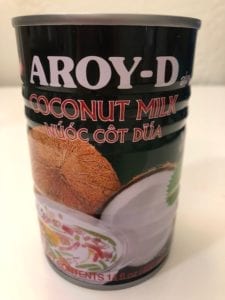This post was updated on January 3, 2024.
As an Amazon Associate, I earn from qualifying purchases. This post may contain affiliate links. Read my disclosure policy.
This recipe is for stage 2 mango baby food puree, 3 ways. These purees are both sweet and savory, and are perfect for your 6 month+ baby.
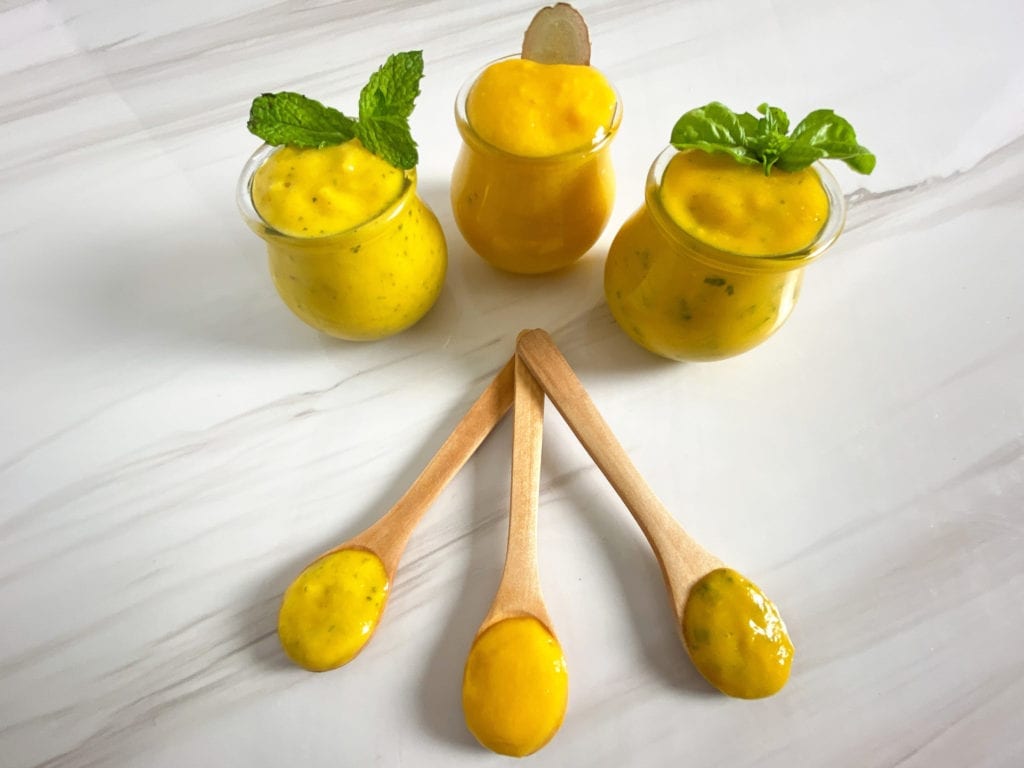
I was lucky enough to grow up in Hawai’i, where the summers are abundant with sweet, juicy mangoes. My family and I now reside in Washington State, where finding a good, fresh mango is rare. I still want my daughter to experience this delicious fruit, so I decided to make her some mango baby food puree.
I made three different varieties: mango with basil, mango with mint, and mango with ginger. They were all delicious, but the mango with ginger turned out to be my favorite.
To stick with the tropical flavors and to provide a creamy texture, I used coconut milk in all of them. It can always be substituted with water, formula, or breast milk if you’d prefer.
Both fresh and frozen mangoes work well with these baby food purees (although you can’t beat a good, ripe, fresh mango).
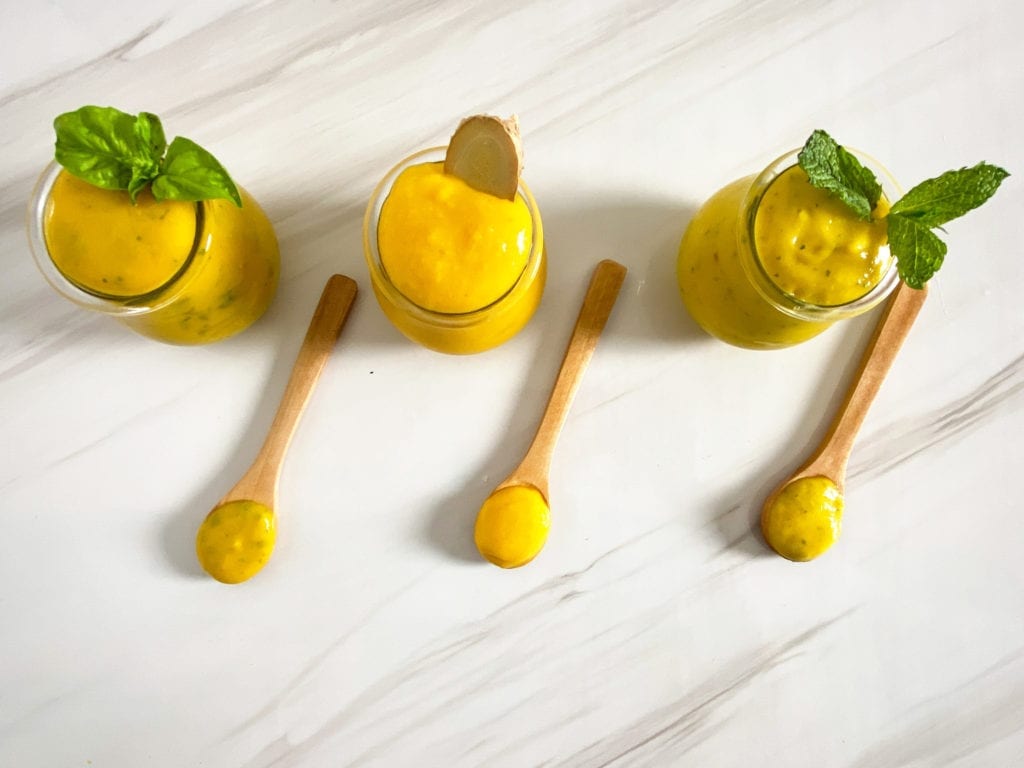
Is it safe to feed mangoes to my baby?
Yes, in general, it is safe to feed mangoes to your baby. While some babies do have allergic reactions to mangoes, it is generally not serious and is pretty rare. The allergen is contained in the mango’s skin and sap, but not in the flesh itself. So, in the rare case that a baby does have a reaction, it is usually because some of the sap came in contact with the flesh and contaminated it.
As with all new foods, only give your baby a small amount of mango at the first feeding. Watch for any immediate reactions such as rashes or vomiting. Wait a few days to see if any delayed reactions occur, such as rashes, upset stomach, or diarrhea.
If your family has a history of allergic reactions to mango or tree nuts, please consult your pediatrician before giving mango to your baby. Mangoes are in the cashew family, so it is possible that someone with a tree nut allergy can also be allergic to mango.
How do you cut mango quickly?
A mango can be tricky to cut if you don’t know how. Here’s the quickest, easiest way to cut a mango:
Step 1: A mango’s seed is large, flat, and oval. Cut the flesh off on both sides of the seed. Then, cut the flesh off from around the seed.
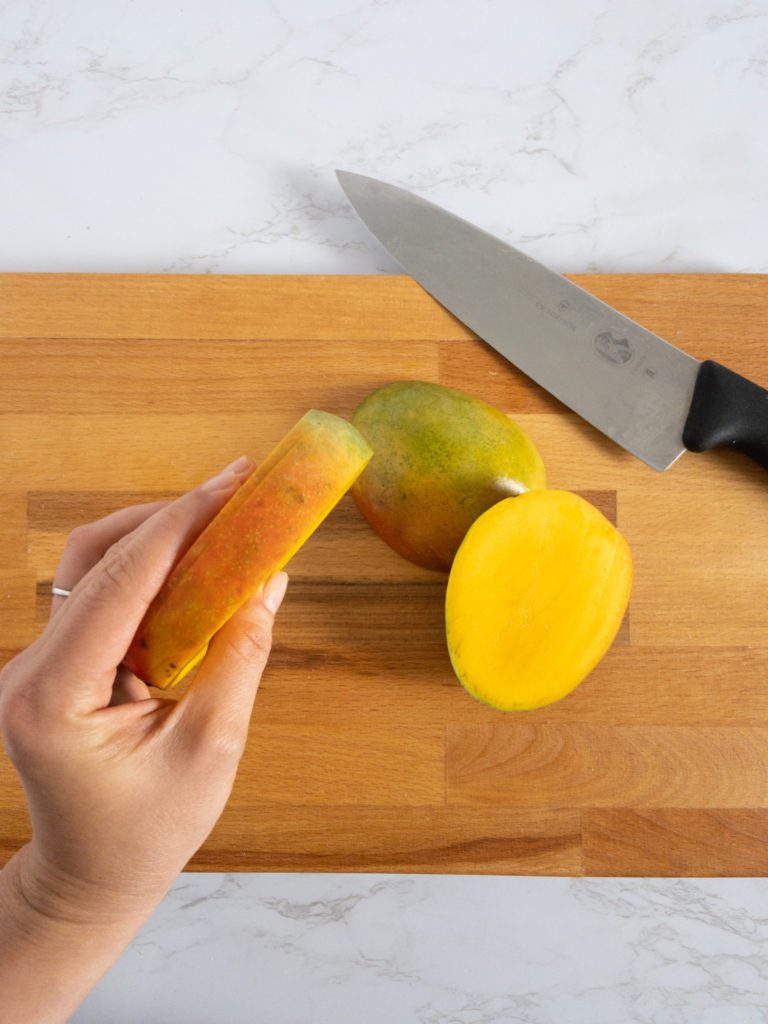
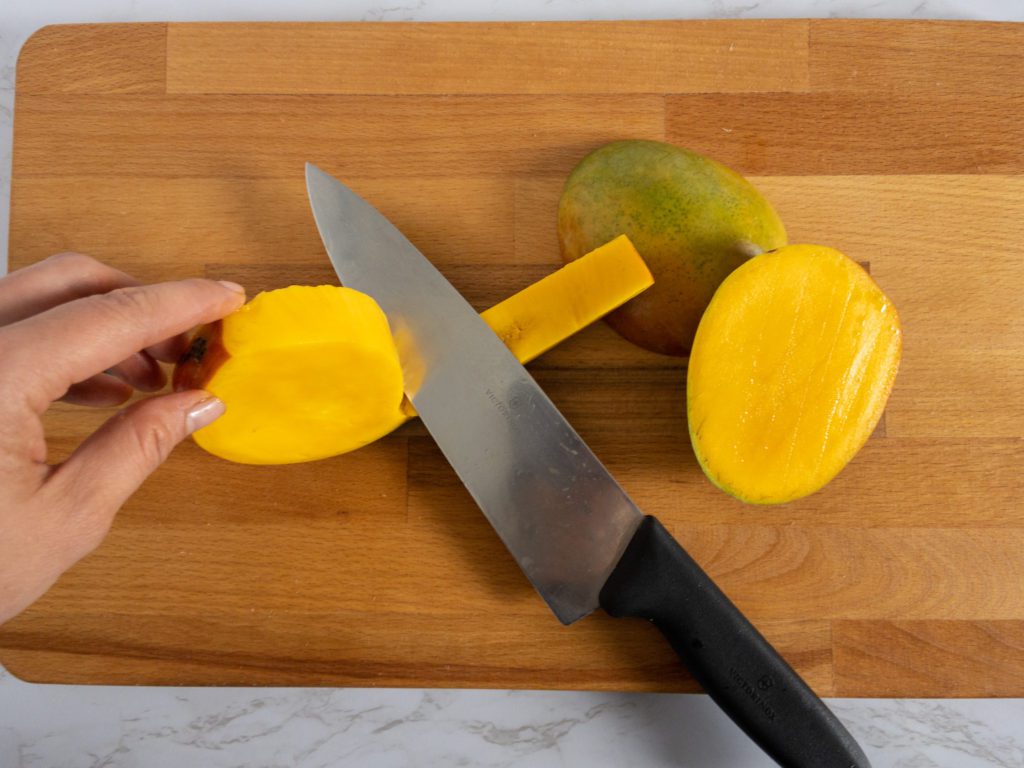
Step 2: Score the large pieces of mango, but be careful not to cut through its skin.
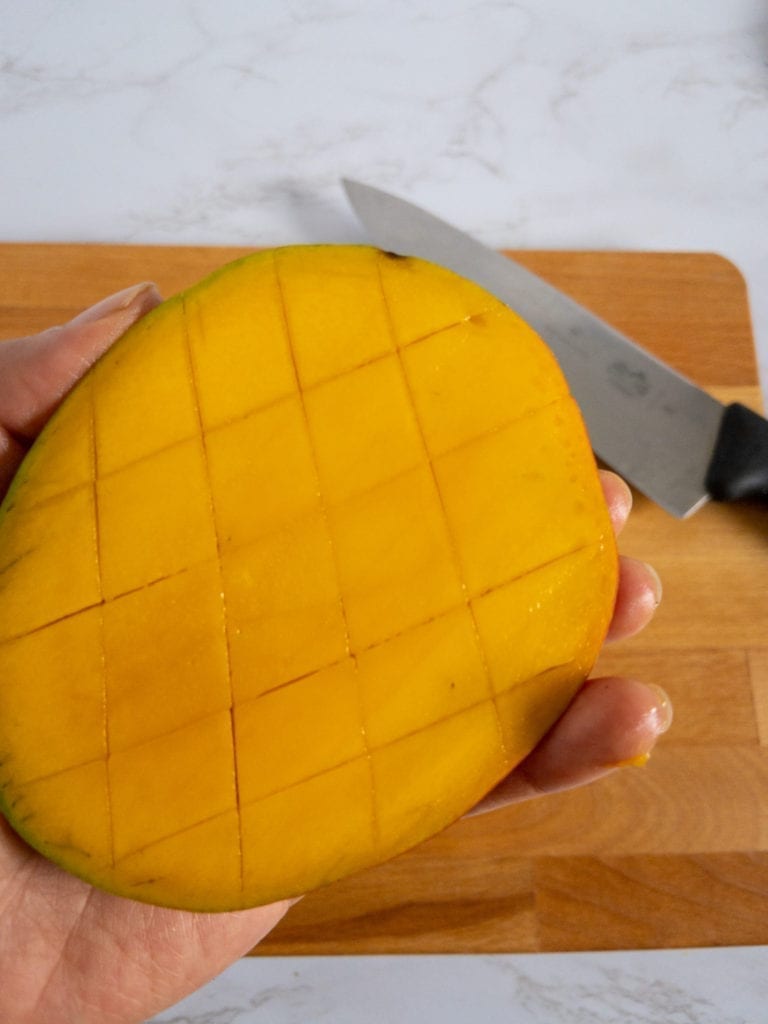
Step 4: Invert the mango so the scored pieces pop out. Then, take a knife and slice off the pieces.
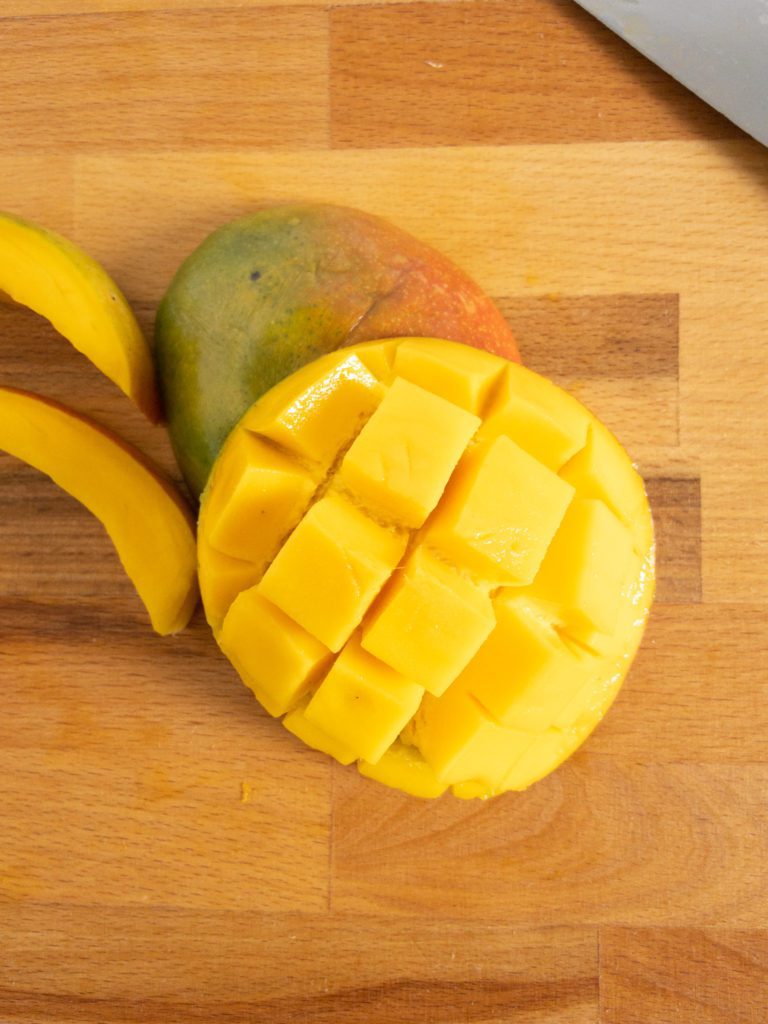
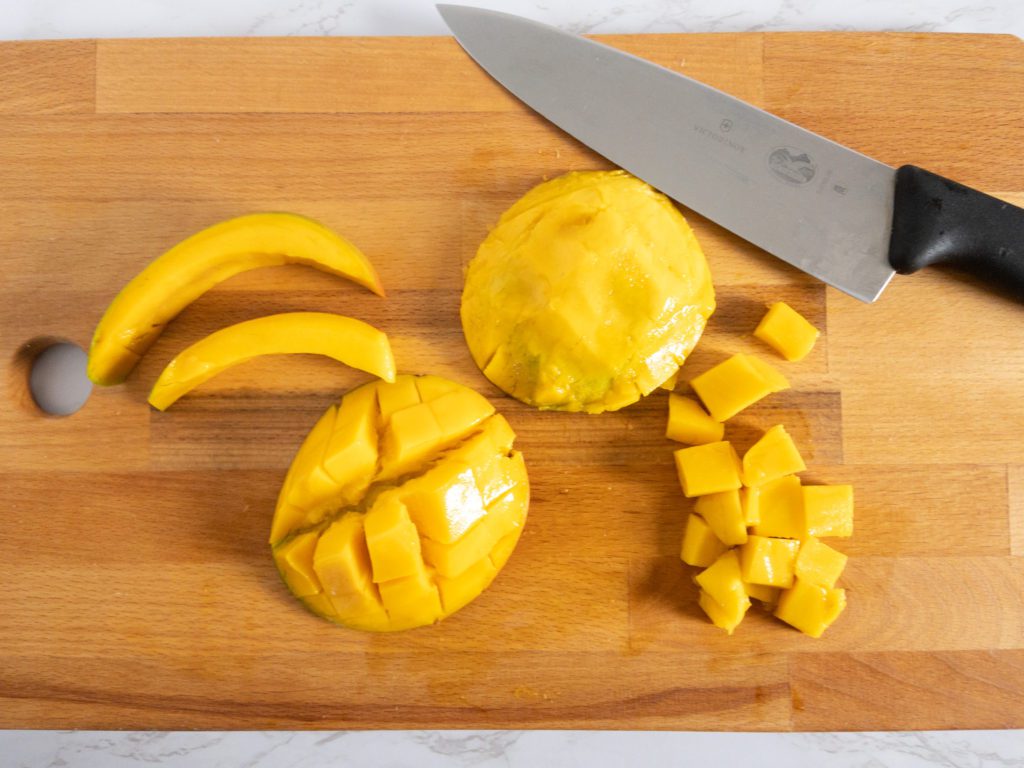
Are all coconut milk the same?
No, not all coconut milk is created equal! Depending on the brand, the ratio of coconut milk to water will vary, which affects the flavor, consistency, and nutritional value. Some brands only contain coconut milk and water, while others have sweeteners and preservatives added. It is really disappointing to open a can (or carton) of coconut milk and have it taste watery and artificial. It can completely ruin the flavor of your dish.
I recommend using Aroy-D brand (from Thailand), which can be found at any Asian store. You can also buy it online here. It contains 60% coconut milk and water, and that’s it. It is delicious and creamy and tastes very natural.
How long will homemade baby food last?
Fresh, homemade baby food will last in the refrigerator for 3 days. Once the 3 days have passed, the remaining food should be disposed of for safety reasons.
If you make this or any other baby food recipes in bulk, it can be stored in the freezer for up to 3 months. Click here for more information, tips, and tricks on storing homemade baby food.
By the way, these baby food freezer storage trays are PERFECT for freezing baby food. They come with snug-fit lids that prevent spills and freezer burns, and they stack so easily.
What else can I do with the mango baby food purees?
I like to serve these mango purees with some plain, whole milk yogurt to give my daughter some protein, calcium, and probiotics as well.
Another great way to use these purees is to make them into popsicles. They are a delicious and nutritious frozen treat. My three-year-old son Easton loves them! My 6-month-old daughter, Emmalee, also likes to chew on them to help with her teething. It’s a great way to soothe her gums while giving her some added flavor and nutrition!
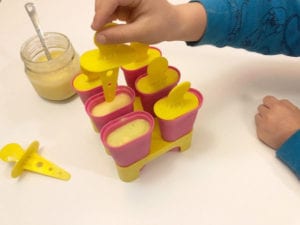

How do you make mango baby food puree?
You will need:
Ingredients:
- 1 cup of mango, fresh or frozen (defrosted)
- 2 tablespoons of canned coconut milk
- 3 teaspoons of fresh basil OR
- 3 teaspoons of fresh mint OR
- 2 teaspoons of fresh grated ginger
Equipment:
Step 1: Add the mango, coconut milk, and your choice of seasoning (either basil, mint or ginger) to a blender.
Step 2: Blend it until it forms a puree. You may need to add more liquid (water, baby formula or breast milk) to achieve your desired consistency.
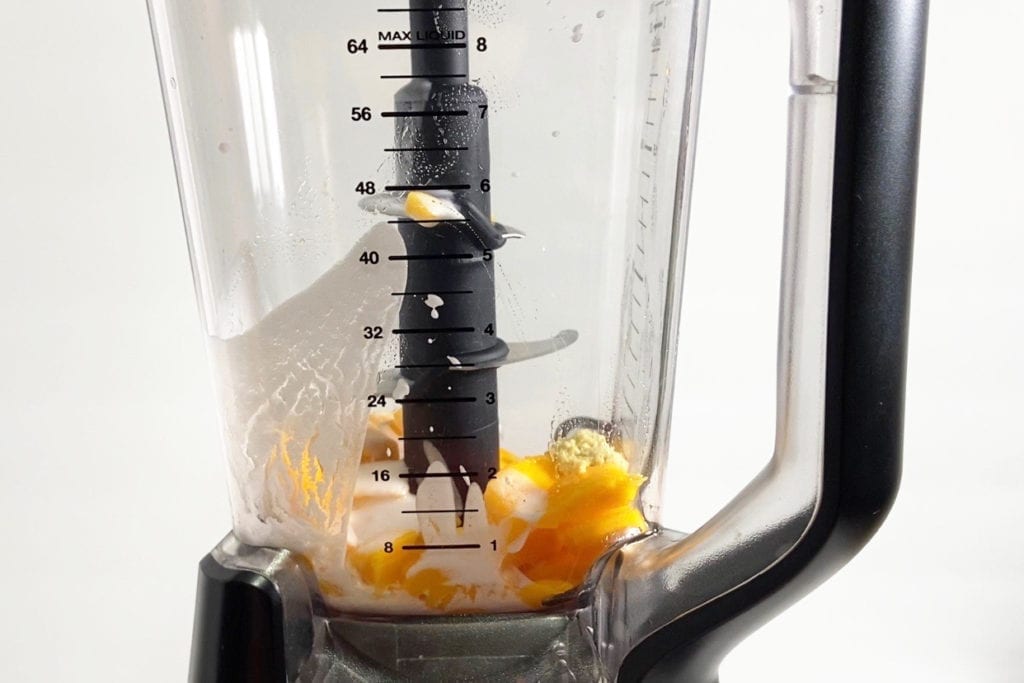
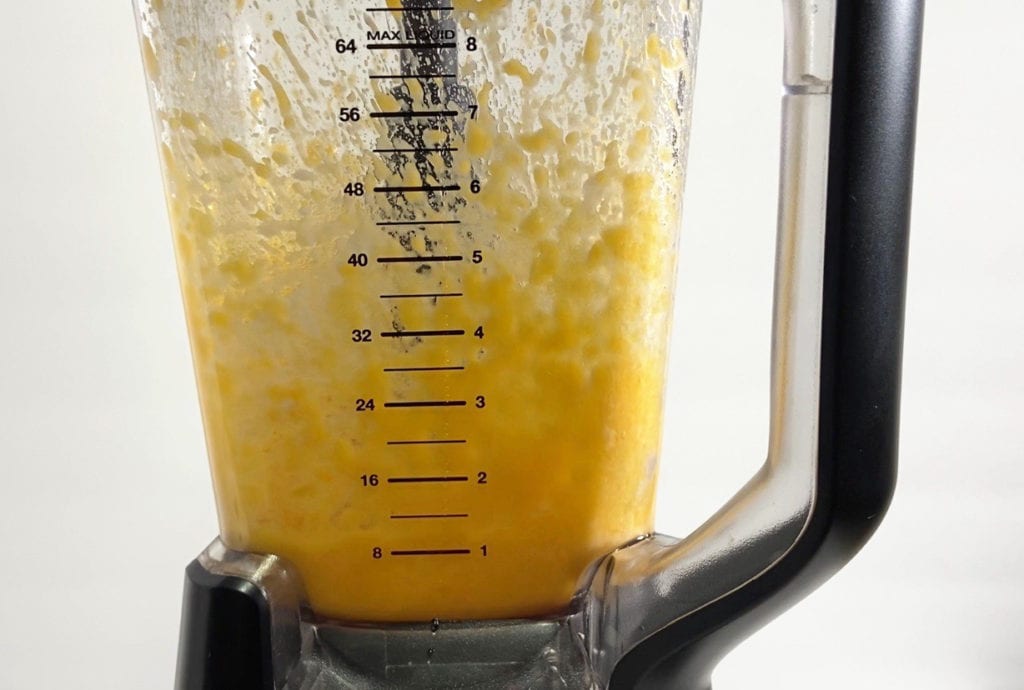
And that’s it! So easy! Serve it as is, or mix it with some yogurt.
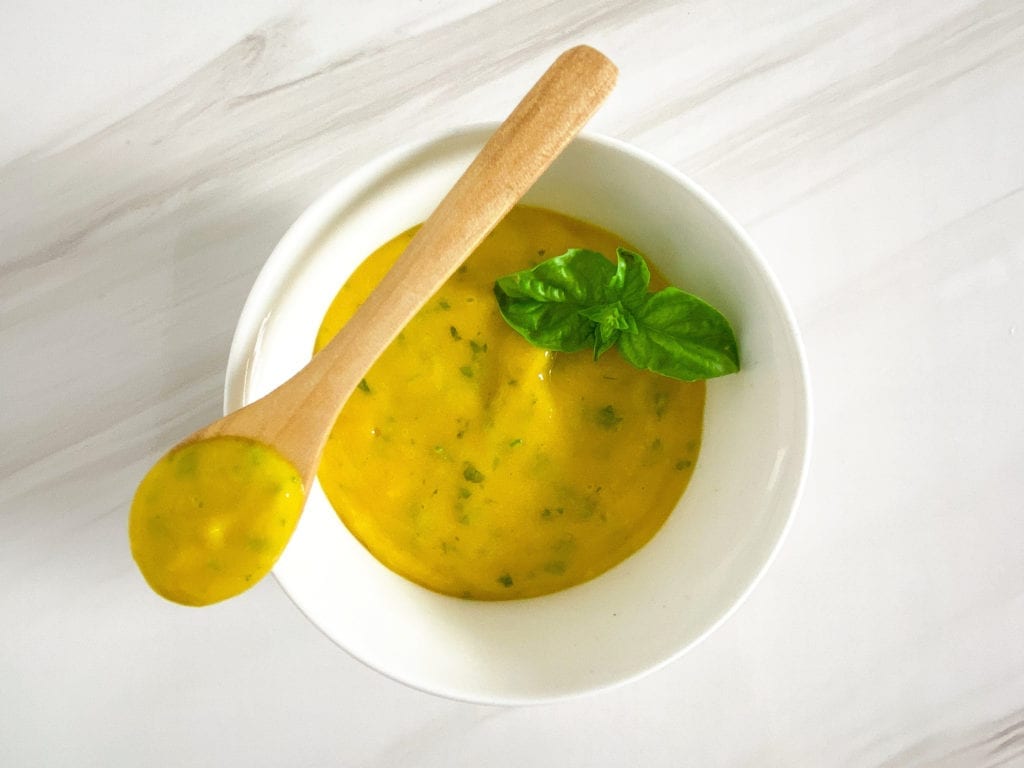
Try these other stage 2 baby foods!
- Mango + Coconut Rice Baby Cereal
- Red Lentil + Carrot Baby Food Mash
- Cucumber + Melon Baby Food Puree
- Red Pepper + Sweet Potato Baby Food Puree
- Okinawan Sweet Potato Baby Food Puree
You should always consult your pediatrician before giving your baby new foods.
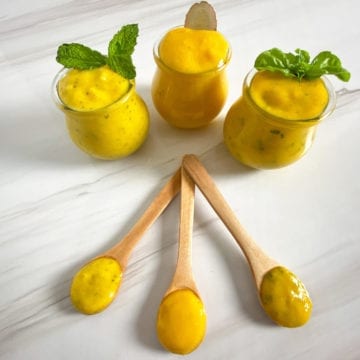
Mango Baby Food Puree, Three Ways
Equipment
Ingredients
- 1 cup mango fresh or frozen (defrosted)
- 2 tablespoons coconut milk substitute breast milk, baby formula, or water if desired
- 3 teaspoons fresh basil OR
- 3 teaspoons fresh mint OR
- 2 teaspoons fresh grated or chopped ginger
Instructions
- If using fresh mango, wash, peel and cube 1 cup of mango. If using frozen mango defrost it first.
- Place mango, coconut milk, and your choice of mint, basil or ginger into a Baby Bullet, food processor or blender.
- Blend until it forms a puree.
- If needed, you can use water, baby formula or breast milk to thin out the puree.
Notes
- Fresh mango always tastes the best, so use fresh if it’s available.
- Make sure to use a good quality canned coconut milk. I highly recommend the Arroy-D brand.
As always, sharing is caring! Please click on the buttons below to share this post with your friends!

